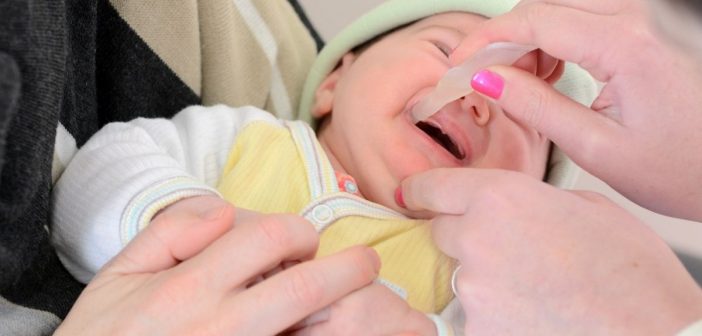What does it mean to be immunised?
The safest method of protecting your kid from an infectious illness is via immunisation. Immunisation for babies is extremely critical. If your kid is immunised against the illness, they will be able to fight it off the next time they are exposed to it. They’ll be safe from the sickness and will be protected.
What is the process through which vaccinations work?
Immunisation for babies uses the immune system’s built-in defences to keep them healthy and disease-free. To fight illness, your body’s immune system must first identify the disease-causing agent as dangerous and then mount an attack to eliminate the virus or bacterium. Antibodies are big proteins produced by your immune system as one method of combating illness. Antibodies serve as scouts for the immune system, tracking and identifying the infectious pathogen so it may be destroyed.
A particular immune response is elicited by each antibody based on the disease-causing organism it has identified. Antibodies that were produced during the illness will stay in your body long after you’ve recovered, giving your immune system a fighting chance to fight off any future infections. Immunity is the scientific term for this phenomenon. The most popular method of immunisation for babies is vaccination. An inactive version of the disease-causing bacterium or virus is included in vaccines to protect them against it.
Vaccines work by introducing weakened or dead strains of bacteria or viruses into the body, which then stimulates an immune response without really getting the babies sick. The vaccine’s bacterium or virus will still be attacked by the immune system, which will develop antibodies to resist it. So that if a vaccinated person subsequently meets the illness, their immune system is ready to fight it off and prevent an infection from forming, it keeps a memory of the sickness.
How many rounds of immunizations will my kid get at the age of eight, twelve, and sixteen weeks?
- Immunisation for babies against the following diseases at eight weeks of age are as follows:
Hepatitis B and Rotavirus, as well as Meningococcal group B, diphtheria, tetanus. These will be administered orally through two injections and a dropper.
- Immunisation for babies against the following diseases at twelve weeks of age are as follows:
Polio, Haemophilus influenzae type b, Hepatitis B, pneumococcal illness, and rotavirus. These will be administered orally through two injections and a dropper.
- Immunisation for babies at sixteen weeks against the following diseases are as follows:
Polio, Haemophilus influenzae type b (Hib), hepatitis B, and meningococcal group B. There will be two injections of each of them.
At the age of one, what immunizations will my kid have received?
Immunisation for babies against diseases at age one are:
- Type B Haemophilus influenzae/Group C Meningococcal meningitis (MenC)
- MenB
- mumps, rubella, and the measles
- illness caused by pneumococcal bacteria
When is the best time of immunisation for babies?
Immunizing your kid at the appropriate age is critical; the first shots are given to infants as early as eight weeks of age. These immunizations will be repeated at the ages of twelve and sixteen weeks. Other vaccinations begin around the age of one year.
What is the rationale for infant immunisation?
Many diseases are especially dangerous for newborns. To avoid contracting the illnesses, it’s critical that newborns get safeguarded as early as possible.
What takes place during the consultation?
Any questions you have about the immunisation procedure will be answered by the doctor or nurse. Most immunizations are administered through injection into the thigh or upper arm muscles of the youngster. The rotavirus vaccination is administered orally in the form of drops.
Can you tell me what will happen if I don’t show up for my appointment?
Do not wait until the last minute to schedule an immunisation appointment. You don’t have to start from scratch if you want to continue the immunisation programme from where it left off. Vaccination against rotavirus may only be begun in infants as young as 15 weeks old, and no dosage can be administered to anybody older than 24 weeks.
In order to ensure that all children get the optimum protection against avoidable illnesses, immunisation programmes are continually evaluated. Vaccination schedules will be adjusted if new vaccinations become available or new research demonstrates that administering current vaccines at various times enhances protection. The UK programme has undergone the following revisions recently:
- Vaccination against hepatitis B at the ages of eight weeks, twelve weeks, and sixteen weeks
- Administering rotavirus vaccines to infants between 8 and 12 weeks old
- Vaccinating infants against MenB at eight, sixteen, and one year of age
- Flu vaccination of eligible primary school children
- MenACWY administration to adolescents between the ages of 14 and 18
- Replacing two doses at eight and sixteen weeks with a single 12-week-old priming dose of pneumococcal vaccination




